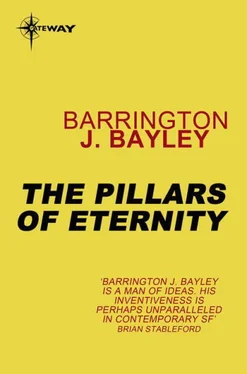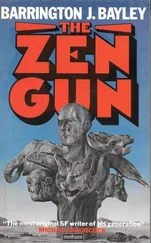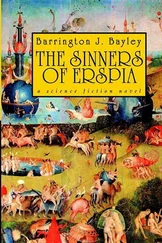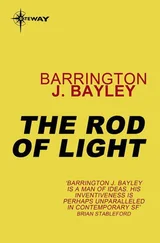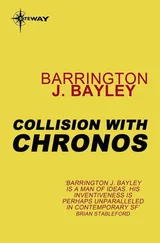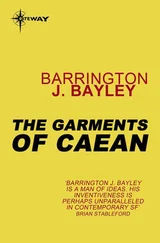In the opposite direction, he hurtled in a low, flat trajectory. Over the south magnetic pole he piled on power and shot away from the planet, using it to screen his ship. Soon he was through the c barrier and safe.
Only then did he realize he had forgotten something. He should have taken Romrey’s time-gems from his belt pouch. Romrey, if he did come out of time-stop, was going to be in deep trouble over those gems.
The matter of the meeting was so secret that all but three of those present would be subjected to memory elision before leaving the building. The privileged three had ordered the meeting. Two were econospheric councillors. The third, a man with steady blue eyes and an impassive gaze, was the heavily adplanted Director of the Department of Scientific Affairs. All three were members of the Cabal, the inner and semi-secret society by means of which the econospheric government buffered and protected its business.
Seated triumvirate fashion on the traditional raised dais, they loomed like judges over the dozen or more advisers squatting on cushions arranged in a horseshoe on the floor. These, too, were nearly all government employees – scientists, philosophers, policemen. The exception was a quiet individual who had been brought all the way from the famed colonnader planet of Aurelius. To him the trio paid a more discernible, if grudging, respect.
Not until they had settled themselves were the advisers informed that they were to discuss infringements of Article 70898/1/5: Regulations Concerning the Measurement of Time . It was in these regulations, so as not to draw undue attention to it, that the prohibition on time research was buried. The first stage of the meeting, officially called ‘Presentation of the Problem,’ was nearly over. The gathering was watching a recording of a police interrogation, and on the holocast a lean-faced man, still younger rather than middle-aged, swayed drunkenly in the straps of the chair that held him. His mind was being played back with no less trouble than a voice tape.
Gare Romrey was that man, recovered from time-stop, charged with possession of prohibited artifacts, all legal rights waived in the interests of state security. ‘The man’s crazy,’ he was mumbling. ‘The craziest alec I ever came across. By the cards, I was glad to get away from him….’
The picture faded as Romrey slumped. The whole story had been drained from him.
Into the silence that followed, Cere Chai Hebron, the Scientific Director, spoke. ‘From the information obtained from this man, from the other criminal Radalce Obsoc whose confession you have also seen, and from the robots who accompanied the latter, a probability analysis has been made of the period the fugitive Joachim Boaz spent upon the wandering planet. It is estimated with a weighted probability of around sixty-eight percent that the fugitive gained some information concerning time control that could not be perceived by his companion Romrey – remember Romrey’s puzzlement that Boaz decided to leave the alien complex so abruptly, at a point where it might seem the search was most in prospect of greater success. Added to this, possession of the time-refractive gems itself opens up the likelihood of illegal experimentation, with a weighted probability of nearly ninety-seven percent that prohibited data will be obtained – data, incidentally, not available to the authorities themselves, since previously all circulating time-gems had been confiscated and placed under interdict.
‘It might be asked why an expedition of foray is not sent to Meirjain to ascertain the validity of these conclusions. The fact is that although less than a standard year has passed since the events in question took place, the planet has already disappeared back into the Brilliancy Cluster and has proved unlocatable.
‘I now ask Citizen Orskov, Dean of Moss Corporated Laboratories, to speak.’
The designated academic, grey-haired, with a mild manner and a slight nervous affliction that caused him to jerk his head a little as he spoke, did not rise. ‘A few months ago we were asked by the Department to make a fresh examination of the Mirror Theorem,’ he began. ‘For the benefit of those who may not be acquainted with it, the Mirror Theorem describes the motions of point masses through eternity. Put briefly, it states that if an intersection is made at any arbitrary moment in time, the world-lines produced by the future configurations of the totality of point masses in the universe will be an identical reflection of the past configurations. In less technical language, the theorem proves, given a sufficiently long span of time, the periodic recurrence of the universe.
‘Philosophically speaking there has always been a missing piece in this theorem. It deals with a closed system. Its prediction that the future will exactly repeat the past arises from the mechanical determinism inherent in the movements of masses. For a loose illustration of this principle, we can refer to its earliest historical exposition by the prescientific philosopher Lucretius. Working purely with inductive, observational methods, Lucretius produced an account of nature that in many respects was remarkably correct. He pictured the universe as consisting of particles or atoms falling through an endless void. As they fell the particles collided, tangled with and parted from one another, and the impermanent configurations that resulted comprised the worlds and their contents. Since the particles must eternally continue to fall, and since the number of possible configurations is limited, it follows that the same configurations, that is, the same worlds, beings and events, must recur again and again.
‘For Lucretius’s perpetual falling we can substitute its modern equivalent, the law of conservation of mass and energy which, in general terms, represents the endless momentum inherent in matter. What the Mirror Theorem lacks, however, is any term showing that the theorem is rigorous. The theorem is valid not of necessity, but simply because what it describes is a closed system. It has yet to be shown what would happen were an extraneous factor, by some unimaginable means, to be inserted into this system. What could be extraneous to the universe, you may ask? That is why this feature of the Mirror Theorem has never been taken seriously, and why to all intents and purposes the theorem has been regarded as rigorous.
‘Nevertheless, it is thought that the configurations exhibited by our universe in its lifetime do not exhaust all possible configurations, and therefore alternative universes are at least conceivable.’
With that, the academic sat silent, nodding to himself and smiling.
‘Well, and what did your examination yield?’ Director Hebron prodded impatiently.
‘Hm? Oh yes. So sorry. No change. We could not prove the rigorousness of the Mirror Theorem. The mutability of time remains theoretically possible.’
One of the econospheric councillors nodded gravely, and took up the theme. ‘Extraordinary though it may seem, this is the possibility we must seriously consider. Ever since the non-rigorousness of the Mirror Theorem was discovered, we have had to take account of the fact that there might , however low the order of probability, be a means whereby the unfolding progression of events could be turned aside. We know what this means, do we not? It means that the magnificent stability which the econosphere enjoys, and which is guaranteed eternal by cosmic recurrence, could be nullified. The next manifestation of the world could be one in which the econosphere does not exist, in which none of us exists. The time regulations are there to guard against this remote possibility.’
What grotesque grandiosity, thought Madrigo as he listened to the discussion. It was a case of political ideology arrogating cosmic proportions to itself – a peculiarly gross overestimate of the importance of mankind.
Читать дальше
